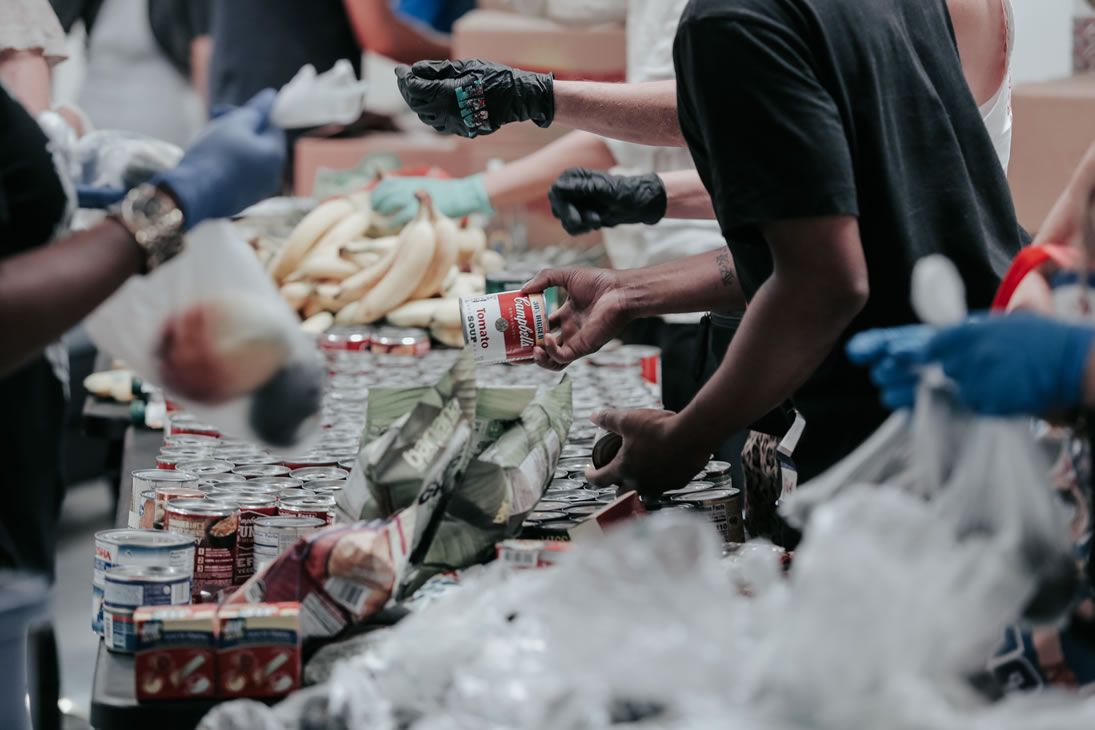Food insecurity and the cost of living crisis
Today's guest blog is from Mali Sion Evans, Feeding Bristol Community Project Developer
When times are hard, having to choose between paying bills and eating is routine practice for some Bristol residents. Food should be a source of connection, celebration and comfort. But it’s becoming a cause of stress and anxiety for many people during the current cost of living crisis.
1 in 8 households in Bristol's most deprived areas are experiencing food insecurity and by all predictions this is likely to increase substantially over the coming months.
Vulnerable groups and communities are considerably less protected when it comes to economic shocks, we are witnessing an increasing number of individuals and families being affected.
Bristol, as this
map shows, has inequality of access to food. Seeing the numbers of greengrocers and cafes in some areas of the city, you would struggle to believe that food banks were commonplace in adjacent wards. The areas that are most and least effected by the cost-of-living crisis exist side by side, hiding food insecurity in plain sight.
A new and emerging crisis
Public awareness of food poverty has increased significantly in recent years, but so has the use of emergency food aid such as food banks. In the first 11 weeks of lockdown,
the number of people receiving emergency food support in Bristol rose by 400%. Free school meal applications increased by 250% in the same period.
This was an unparalleled crisis which initiated an extraordinary response; we saw Bristol’s true spirit. From community centres to cafes, farms to mosques, people all over the city set out to bring food to their neighbours and provide lifelines for those who needed support.
The word ‘unprecedented’ was used repeatedly over the course of the COVID-19 pandemic. But here we are again; volunteer shortages, increasing energy costs, rising inflation and supply chain disruptions are creating a perfect storm. This will intensify food insecurity to unprecedented levels across Bristol, yet again.

Feeding Bristol
Working together is Bristol’s greatest asset
Hundreds of people all over the city are working hard to try and ease the impact of this crisis. Food banks and community food services are already doing their best to prepare for the worst-case scenario. Dozens of organisations are working together to find ways to extend support and encourage social action. And hopefully, we’ll see this city’s caring and generous energy galvanise to support fellow Bristolians, yet again.
Having published the
Food Equality Strategy this summer, Feeding Bristol is currently working with Bristol City Council to develop a Food Equality Action Plan. The aim is to co-create a document of workable actions with citizens, organisations and local authority so that food equality can become a reality in Bristol.
Share your ideas and help shape the Food Equality Action Plan by completing this short
survey.
Visit Bristol City Council’s
cost of living support webpage for more information about food services, plus advice on benefits and financial help, employment and skills and mental health and wellbeing.
How can I access food support?
How can I save money on food?
-
Plan ahead – buying food for the week helps to cut down on impulse buys
-
If you can, buy big bags of rice, pasta etc – they can be cheaper per 100 grams than smaller bags
-
‘Reduced to clear’ foods can help save money - but think about when/how you’ll eat them before you buy
-
One of the best ways we can save money on food is to reduce food waste. The Love Food Hate Waste website has tips on how to store food and cook with old food
-
Buy what you need - buying loose fruit and vegetables can help you save money by purchasing only what you’re going to eat
What can I do to help in my community?
Source: https://thebristolmayor.com/2022/09/27/food-insecurity-and-the-cost-of-living-crisis/
Posted: October 2022